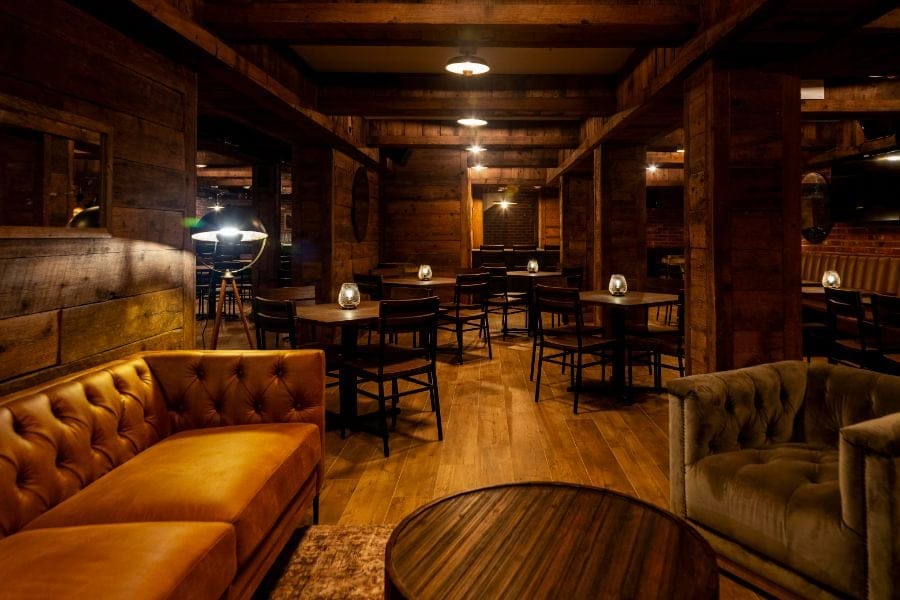Somewhere on Myspace.
That’s where I first learned of the swastika tattooed to 17-year-old Jeff Conroy’s thigh.
“I knew about it. It was just one of those stupid kid stunts,” Conroy’s father told me over the phone in November 2008.
It was a day or two after his eldest boy was arraigned on a charge of first-degree manslaughter as a hate crime in the stabbing death of a 37-year-old man of Ecuadorean descent in Patchogue.
Jeff’s dad, Bob Conroy, at the time was president of the Patchogue-Medford area’s football and lacrosse youth organization. It was Bob who rolled out the welcome wagon when my family moved to Medford.
He helped encourage my 12-year-old daughter to try lacrosse, giving her a stick that had belonged to his daughter and registering her for the league — half-way through the season. He made my 8-year-old son feel important, taking him on a tour of the league facility in North Patchogue.
And he made sure I would be helping coach one of the fourth-grade football teams in the fall.
On the morning of Nov. 10, 2008, I poured some coffee and sat down with the day’s issue of Newsday. To my horror, the front-page story detailed the hate crime murder of Marcelo Lucero.
Seven boys — six were 17 and one was 16 – were charged in the gang assault and slaying.
Five were from Medford, two from East Patchogue. But together they acquired a notorious nickname: the “Patchogue Seven.”
Jeff Conroy, 17, stood accused as the stabber.
The mob’s attack on Lucero concluded a night of what the teens called “beaner hopping,” a tradition that involved hunting down and beating men who appeared to be Hispanic.
As disgusted as I was, I began contemplating what I could do to help Bob Conroy that day. I had worked for eight years as a reporter and editor at the Daily News, where much of my time was spent covering the kind of high-profile murder cases that Lucero’s homicide was quickly becoming.
In terms of media coverage, I knew exactly what the Conroy family was in for. I threw on a shirt and tie and headed to the county courthouse in Central Islip, intent on protecting Bob from the media throng that would bombard him in and out of court.
I arrived in time for the arraignment. I approached Bob and implored him not to speak with reporters outside the courthouse. Following the court proceeding, I helped escort Bob to his car, whispering in his ear to ignore the incessant questions — and not show any anger.
Later that day, I volunteered to continue to help Bob with the media – to be a sort of family spokesperson if necessary. The offer was rescinded the second Bob told me that he knew about the swastika tattoo on his son’s right upper thigh. That he did nothing about it. And that he professed some lame “boys will be boys” excuse for his son.
“Boys will be boys” is an archaic adage that gives a gender an excuse for imbecile, violent and aggressive behavior. Anything that teaches children that certain behaviors are exclusive to masculinity and boys desperately needs to take a hike.
At Jeff’s trial in 2010, the homemade tattoo — an idea Jeff and a pal hatched while watching an episode of the HBO prison drama “Oz” — proved to be damning evidence against Jeff. The prosecution said the tattoo, among other things, illustrated Jeff’s strong feelings toward white supremacy.
Jeff’s “Oz”-watching friend testified that he inked the tattoo on Jeff, and that when it was done, Jeff said, “If I ever go to jail, I’m screwed.” Following his conviction of first-degree manslaughter as a hate crime, Jeff did indeed go to jail, sentenced to 25 years in prison.
At his son’s sentencing, Bob left the courtroom in a tearful rage, after shouting that his son was only 17 at the time of Lucero’s murder.
Bob did his son no favors by holding on to the destructive “boys will be boys” mentality and not cracking down on him and immediately having the grotesque symbol of hate removed from the teen’s leg.
Later, during Jeff’s trial, Bob told a New York Times reporter that he didn’t know his son had the swastika tattoo — and that if he had known, he would have taken his son somewhere to have it removed.
“It was just kids being stupid,” Bob said, according to the Times article.
In the weeks after the murder and Jeff’s arrest, a very close friend of Jeff’s confided in me that he strongly believed Jeff was a product of his father’s fear and hate. That friend recalled picking up Jeff in his car for a night out with friends, and a disturbing phone call that Jeff received from his dad while in the car.
“His father was freaking out and cursing, saying that there were ‘Mexicans in the shed in the back yard,’” Jeff’s friend told me. “He demanded that Jeff come home right away.”
That car ride occurred not long before the murder of Lucero.
Today, Nov. 8, 2018, marks the 10th anniversary of Marcelo Lucero’s death. He’d be 47 today. Jeff is 27, in prison, and not eligible for parole until 2030. Bob Conroy passed away three years ago this week. Remembered by many for his tireless work on behalf of children and youth sports, he was 54.
Top: A photo from 2016 during the annual Marcelo Lucero memorial walk to the place where he was killed in 2008. (Credit: Tiffany Rivera)


























